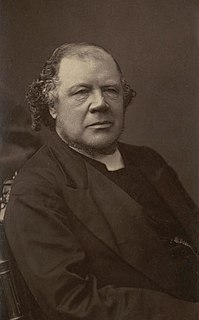A Quote by Vannevar Bush
Consider a future device for individual use, which is a sort of mechanized private file and library. It needs a name, and, to coin one at random, "memex" will do. A memex is a device in which an individual stores all his books, records, and communications, and which is mechanized so that it may be consulted with exceeding speed and flexibility. It is an enlarged intimate supplement to his memory.
Related Quotes
It is possible that an individual may be successful, largely because he conserves all his powers for individual achievement and does not put any of his energy into the training which will give him the ability to act with others. The individual acts promptly, and we are dazzled by his success while only dimly conscious of the inadequacy of his code.
Telephones in 2020 will be archaic, relics of a bygone era-like transistor radios are today. Telephony, which will be entirely IP-based by then, will be a standard communications chip on many devices. We'll probably carry some kind of screen-based reading device that will perform this function, though I assume when we want to communicate verbally, we'll do so through a tiny, earplug-based device.
Philosophy is antipoetic. Philosophize about mankind and you brush aside individual uniqueness, which a poet cannot do without self-damage. Unless, for a start, he has a strong personal rhythm to vary his metrics, he is nothing. Poets mistrust philosophy. They know that once the heads are counted, each owner of a head loses his personal identify and becomes a number in some government scheme: if not as a slave or serf, at least as a party to the device of majority voting, which smothers personal views.
Surely there is a fitness in the institution of the Lord's Supper as a standing memorial by which the church at large may commemorate the grandest act, and by which the heart of each individual believer may be reminded of his dearest friend. You, who have learned to love the Saviour, will prize His ordinance for the Saviour's sake. You who rejoice in the salvation purchased by His dying, will not fail with gratitude and faith to show the Lord's death until He come.
Civil rights are those which appertain to man in right of his being a member of society. Every civil right has for its foundation some natural right pre-existing in the individual, but to the enjoyment of which his individual power is not, in all cases, sufficiently competent. Of this kind are all those which relate to security and protection.
One must be prepared to reject not only the schema of the physical library, which is essentially a response to books and their proliferation, but the schema of the book itself, and even that of the printed page as a long term storage device, if one is to discover the kinds of procognitive systems needed in the future.
Reason cannot desire for man any condition other than that in which not only every individual enjoys the most absolute, unbounded freedom to develop himself out of himself, in true individuality, but in which physical nature, as well, need receive no other shaping by human hands than that which is given to her voluntarily by each individual, according to the measure of his wants and his inclinations, restricted only by the limits of his energy and his rights.
I have often asked Americans wherein they consider their freedom superior to that of the English, but have never found them able to indicate a single point in which the individual is worse off in England as regards his private civil rights or his general liberty of doing and thinking as he pleases. They generally turn the discussion to social equality, the existence of a monarchy and hereditary titles and so forth - matters which are, of course, quite different from freedom in its proper sense.
There are crimes which no one would commit as an individual which he willingly and bravely commits when acting in the name of his society, because he has been (too easily) convinced that evil is entirely different when it is done 'for the common good.'...one might point to the way in which racial hatreds and even persecution are admitted by people who consider themselves, and perhaps in some sense are, kind, tolerant, civilized and even humane.
The doctrine called Philosophical Necessity is simply this: that, given the motives which are present to an individual's mind, and given likewise the character and disposition of the individual, the manner in which he will act might be unerringly inferred: that if we knew the person thoroughly, and knew all the inducements which are acting upon him, we could foretell his conduct with as much certainty as we can predict any physical event.
[T]he individual in whom the will for the light is strong and clear finds his heart inextricably bound up with the struggle of the forces of light in his native place and time. Much as he may long for the opportunity of fuller self- expression in a happier world, he knows that for him self-expression is impossible save in the world in which his mind is rooted. The individual in whom the will for the light is weak soon persuades himself that his opportunity lies elsewhere.




































